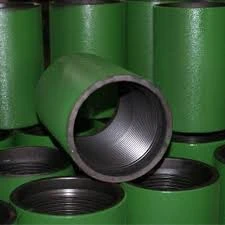- Afrikaans
- Albanian
- Amharic
- Arabic
- Armenian
- Azerbaijani
- Basque
- Belarusian
- Bengali
- Bosnian
- Bulgarian
- Catalan
- Cebuano
- Corsican
- Croatian
- Czech
- Danish
- Dutch
- English
- Esperanto
- Estonian
- Finnish
- French
- Frisian
- Galician
- Georgian
- German
- Greek
- Gujarati
- Haitian Creole
- hausa
- hawaiian
- Hebrew
- Hindi
- Miao
- Hungarian
- Icelandic
- igbo
- Indonesian
- irish
- Italian
- Japanese
- Javanese
- Kannada
- kazakh
- Khmer
- Rwandese
- Korean
- Kurdish
- Kyrgyz
- Lao
- Latin
- Latvian
- Lithuanian
- Luxembourgish
- Macedonian
- Malgashi
- Malay
- Malayalam
- Maltese
- Maori
- Marathi
- Mongolian
- Myanmar
- Nepali
- Norwegian
- Norwegian
- Occitan
- Pashto
- Persian
- Polish
- Portuguese
- Punjabi
- Romanian
- Russian
- Samoan
- Scottish Gaelic
- Serbian
- Sesotho
- Shona
- Sindhi
- Sinhala
- Slovak
- Slovenian
- Somali
- Spanish
- Sundanese
- Swahili
- Swedish
- Tagalog
- Tajik
- Tamil
- Tatar
- Telugu
- Thai
- Turkish
- Turkmen
- Ukrainian
- Urdu
- Uighur
- Uzbek
- Vietnamese
- Welsh
- Bantu
- Yiddish
- Yoruba
- Zulu
Exploring the Features and Benefits of Chinese Casing Couplings in Oil and Gas Industry
China Casing Coupling A Key Component in Oil and Gas Operations
Casing coupling is a crucial component in the drilling and completion of oil and gas wells. It acts as a connector to join two lengths of casing pipes, ensuring a secure and leak-proof flow path for hydrocarbons to be extracted from underground reservoirs. In recent years, the importance of casing coupling has gained significant attention, particularly in regions like China, where oil and gas exploration is expanding rapidly.
Understanding Casing Couplings
Casing is a series of pipes that line the boreholes of oil and gas wells, designed to support the well structure and protect it from external pressures and contaminants. Casing couplings serve as mechanical connectors that link these pipes together. The reliable performance of casing couplings is essential as they must withstand high pressures and severe temperatures associated with downhole conditions.
Casing couplings come in various sizes and materials, including steel and alloys, chosen based on the specific requirements of the drilling operation. The most common types of couplings include threaded and welded couplings. Threaded couplings feature external threads on one end and internal threads on the other, providing a robust connection. Welded couplings, although less common, are used in specific applications where a permanent joint is required.
The Role of China in Global Casing Coupling Production
China's emergence as a global leader in the production of casing couplings can be attributed to its extensive manufacturing capabilities and technological advancements. The country houses numerous companies that specialize in producing high-quality casing couplings tailored for both domestic and international markets. These companies leverage advanced manufacturing techniques, including precision machining and quality control processes, to ensure that their products meet or exceed international standards.
Moreover, China's growing oil and gas sector has spurred demand for casing couplings. As exploration and drilling activities intensify in both onshore and offshore environments, the need for reliable and efficient coupling solutions has become paramount. Coupled with China's investment in deepwater drilling and unconventional resource development, the market for casing couplings is projected to expand significantly.
china casing coupling

Quality Control and Standards
Quality control is a top priority in the production of casing couplings. In China, manufacturers are increasingly adopting international quality standards, such as the American Petroleum Institute (API) specifications. Adherence to these standards ensures that couplings can withstand the rigors of downhole conditions and perform reliably throughout their lifecycle.
Testing procedures for casing couplings typically include tensile strength, yield strength, and impact resistance assessments. Manufacturers also conduct non-destructive testing methods to detect any surface or subsurface flaws in the material. By maintaining stringent quality control measures, Chinese manufacturers can offer products that meet the demanding requirements of the oil and gas industry.
The Future of Casing Couplings in China
As the global energy landscape continues to evolve, the role of casing couplings in China's oil and gas sector is likely to grow. The increased focus on sustainable and efficient energy practices is prompting manufacturers to innovate and develop new materials and designs that enhance performance while minimizing environmental impacts.
Additionally, the shift towards renewable energy sources could open new avenues for casing coupling technology, as hybrid energy systems may require specialized equipment for their construction and maintenance. The adaptability of Chinese manufacturers to evolving industry needs positions them well to remain key players in the global market for casing solutions.
Conclusion
In summary, casing couplings are essential elements in the oil and gas industry, providing the necessary connections for efficient resource extraction. China's rising dominance in the manufacturing of casing couplings reflects its broader ambitions within the global energy sector. As the industry continues to innovate and grow, it is clear that high-quality, durable casing couplings will remain a critical component of successful oil and gas operations.
-
Tubing Pup Joints: Essential Components for Oil and Gas OperationsNewsJul.10,2025
-
Pup Joints: Essential Components for Reliable Drilling OperationsNewsJul.10,2025
-
Pipe Couplings: Connecting Your World EfficientlyNewsJul.10,2025
-
Mastering Oilfield Operations with Quality Tubing and CasingNewsJul.10,2025
-
High-Quality Casing Couplings for Every NeedNewsJul.10,2025
-
Boost Your Drilling Efficiency with Premium Crossover Tools & Seating NipplesNewsJul.10,2025







